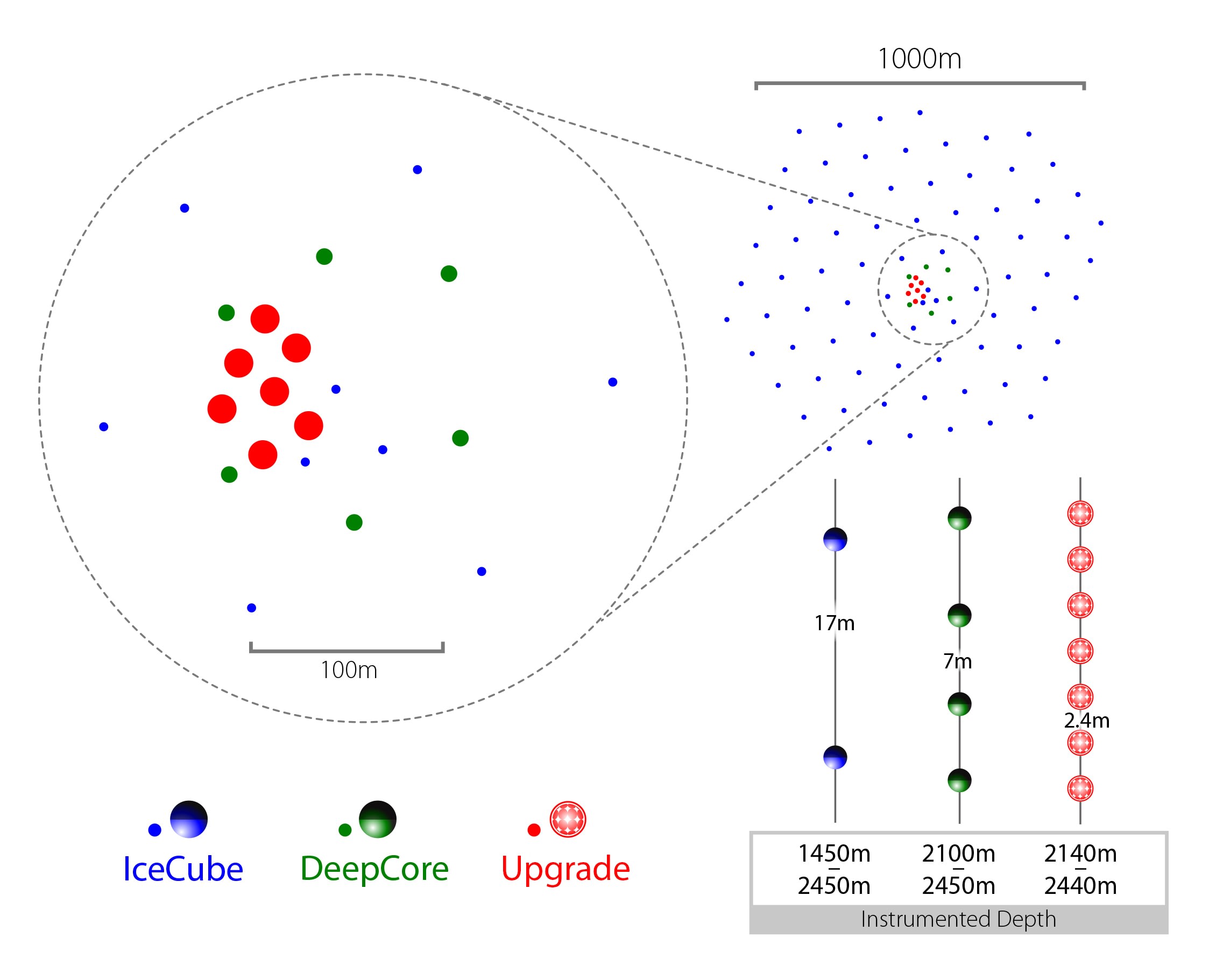A group of scientists tasked with advising the federal government’s investments in particle physics research is recommending that the United States fund a planned expansion (dubbed IceCube-Gen2) of the IceCube Neutrino Observatory, an international scientific collaboration operated by the University of Wisconsin–Madison at the South Pole.
The recommendation from the Particle Physics Project Prioritization Panel, or P5, joins other major research priorities in the field, including support for a separate neutrino experiment based in Illinois and development of a next generation of ground-based telescopes designed to observe the cosmic microwave background. The recommendations are included in a draft report published Dec. 7.
Read the full University of Wisconsin–Madison press release here.



